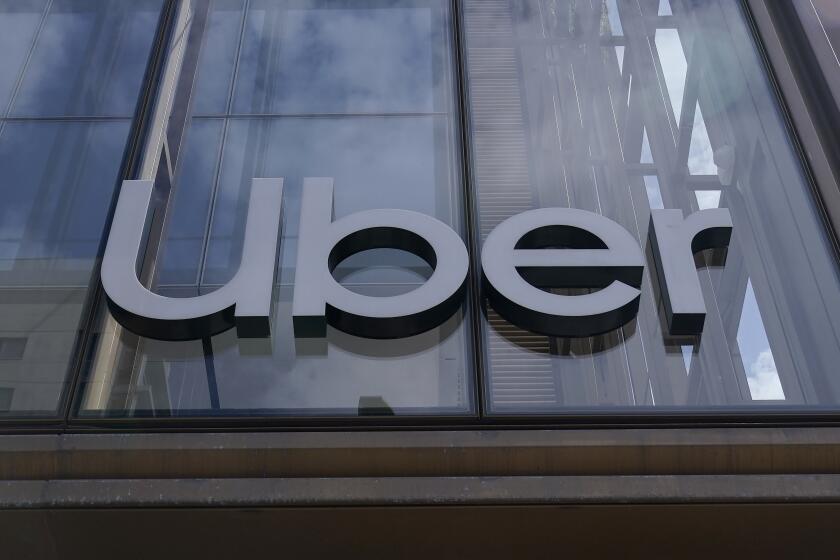Bus Stop
- Share via
On Friday, striking MTA mechanics offered to abide by binding arbitration on their contract impasse. The MTA board rejected the offer, saying it was disingenuous. It’s unclear, now, when the strike that has crippled mass transit in the county will end. We asked each side to explain its position.
*
Let’s clear the air.
No responsible union wants a strike or derives any satisfaction from such a job action. Our strike against the Metropolitan Transportation Authority, now in its third week, is a nerve-racking, economically harmful and wearying action. It is putting enormous pressure on both riders and members of Amalgamated Transit Union Local 1277. I have been in Local 1277 for 29 years, an officer for 21, and this is the first strike I have ever called.
Our union, furthermore, has offered to submit to binding arbitration. After submitting the unsettled issues to an arbitrator, we would immediately return to work and get the buses and trains moving again -- as long as the MTA maintains the current cost of benefits for our members while we await a decision.
I regret that the contract negotiations came down to a strike just because the MTA chose not to resolve vital wage and benefit issues through good-faith bargaining. Instead, the transit agency chose to run a costly public-relations campaign, paid for by tax dollars, to distort our demands and smear the union that represents its mechanics and service attendants.
Under Chief Executive Roger Snoble, the MTA has perfected the arts of hypocrisy and divisiveness. First, it pledged a “new era” of cooperation and respect for its unionized workers. It offered incentives to increase efficiency and service. It held barbecues for us. Then it began a determined drive to reduce our wages and gut our benefits.
The MTA always seems to have money for inflated executive salaries, housing allowances and travel subsidies, and to pursue a losing lawsuit to overturn the consent decree that requires it to buy more buses. It remains committed to billions of dollars in long-range projects and contracts but claims it cannot fund its medical obligations to its union-represented employees.
Here are the real issues:
* The MTA proposes no pay increase for two years.
While we have worked without a contract since Oct. 1, 2002, the MTA hasn’t paid the required quarterly wage adjustment. This issue is now before an arbitrator. The agency’s only offer of a pay increase to cover the period from July 2000 to July 2004 is this wage adjustment already owed our members. The MTA can afford a pay raise for us. It owes its workers ahead of contractors and consultants.
* The MTA wants to gut health care for our retirees.
The agency proposes to contribute the same amount -- $142.55 per member per month -- for Medicare-eligible retirees’ health care as it paid 21 years ago, even though it now costs about $500 more per member to provide the same benefits. Furthermore, for the first time, it wants to contribute less to the health-care fund for retirees under 65 than to that for its active employees. In fact, MTA today pays less for health coverage per active member and retiree than its predecessor, the Rapid Transit District, did 10 years ago.
For more than 25 years, the MTA, through the union’s health fund, has provided full health benefits to union retirees. We are willing to negotiate co-pay fees, membership of the medical fund’s board and related matters. But we will not budge from the basic principle of treating retirees the same as active employees when it comes to maintaining health-care benefits.
Our union has offered to hike our members’ contributions to the health and welfare fund by more than 1,200% -- to an amount up to 10% of the ever-increasing monthly premium. It is worth noting that already-well-paid MTA higher-ups pay only 9% of their monthly premiums.
* The MTA bargains in bad faith.
The transit authority claims that it has made numerous offers. Problem is, these offers amount to the same thing: shuffling around the same inadequate amount of money it wants to offer us and saying, “You can rearrange the figures any way you want, but that’s all you’re getting.”
County Supervisor Zev Yaroslavsky, the chairman of the MTA board, has enjoyed strong union support ever since he entered public office. Now he is out-demagoguing other anti-union board members by using the media to bash the working people and their families who have been his base.
Something is drastically wrong when 15% of the population of the most economically powerful country in the world lacks basic health coverage. Worse, this appalling figure doesn’t include millions of working men, women and their families who, because of increasing medical costs, are stuck with bare-bones coverage, if they can afford it at all.
This is why union members as diverse as mechanics, service attendants, drivers, Teamster drivers, supermarket clerks and county deputy sheriffs are conducting job actions: We are fighting for adequate and affordable medical coverage for ourselves and our families.
Striking is not an action easily or lightly taken. It is stressful and economically threatening. Under no circumstances is it a political ploy. Our union is in the midst of an election campaign. Why would any union leader want a strike in the middle of it? Do you think that one man could single-handedly bring the MTA -- much less mass transit throughout Los Angeles -- to a halt? No, it is the members of our union who are rising up and demanding what is right for them and their families.
Sometimes a strike is necessary, because to do nothing, to accept declining health coverage at a higher cost, is worse. If we give in now, we will not have the health-care benefits we expect -- and have earned -- when we retire. And we all will be retirees some day.
More to Read
Sign up for Essential California
The most important California stories and recommendations in your inbox every morning.
You may occasionally receive promotional content from the Los Angeles Times.










